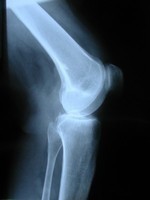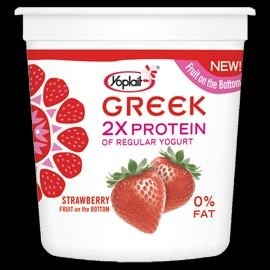General Mills looks 'beyond calcium and vitamin D' for bone health

The food giant, which has a strong presence in the global yogurt market through its Yoplait brand, is also looking for new ways to increase calcium absorption, either by adding new ingredients, finding new sources of calcium or novel processing techniques.
The challenges, outlined via posts on its open innovation platform G-WIN, are the latest in a series of technical briefs in the functional food arena, which reveal General Mills' interest in products that boost satiety, enhance cognitive function and lower risk factors for cardiovascular disease.
Bone formation
In the first bone-related brief, the firm says: “We are seeking ways to enhance and sustain the bone formation process beyond the known impact of calcium and vitamin D through cultured dairy foods."
Potential partners must provide proof demonstrating the efficacy of their solutions to this challenge via animal and/or human studies along with “research support to include markers of bone turnover and strength”.
Calcium absorption
In the second brief, partners with potential solutions to the challenge of increasing calcium absorption in the gut must also be able to show proof of effect via animal and/or human studies along with research support that includes markers of calcium metabolism (calcium metabolic balance, calcium kinetics, calcium retention, calcium absorption) plus markers of bone turnover and strength.
In both cases, ingredients should be GRAS (Generally Recognized as Safe) or have foreseeable approval as GRAS, and should be able to withstand temperatures of 165 degrees Fahrenheit for 15 seconds and be effective at pH 4.5.
Bone health: The size of the prize
According to Leatherhead Food Research, there has been a sharp rise in the number of functional foods and drinks launched on a bone health platform over the last five years, although the retail value of the global market has remained stubbornly flat at around $2.1bn over the same period.
Speaking at NutraIngredients-USA’s bone and joint health virtual conference last month, Leatherhead Food Research (LFR) market intelligence manager Matt Incles said the global number of new launches making bone health claims had doubled from around 500 products in 2006 to around 1,000 in 2010.
However, the value of the category had not grown at a corresponding rate, in contract with the overall functional food market, which had grown from around $17bn to just under $25bn over this period, he said.
But there were signs that the market was picking up, while firms were also expanding beyond traditional ‘breakfast’ products such as fortified milk, juice, cereals and yogurt into a broader range of products from snacks to confectionery, soups, sauces and even ready meals, he said.
Beyond calcium and vitamin D
While most food and beverage manufacturers still opted for calcium and vitamin D in bone health products, some were also starting to experiment with other ingredients from vitamin K2 to lysine, prebiotic fibers and soy isoflavones, while new technology was also driving the market, said Incles, citing Fonterra's Anlene Gold product, which contains ‘nano-calcium’ for improved absorption.
GNC senior vice president of scientific affairs Dr Guru Ramanathan also listed a large number of herbs, botanicals and other ingredients believed to stimulate bone formation, suppress bone breakdown or protect bone architecture, from green tea extracts to turmeric, maca root, black cohosh, boron, red clover and lactoferrin.
Datamonitor predicts that bone and joint health foods in the US retail market will grow at a compound annual growth rate (CAGR) of 4.4 percent from 2009 to 2014, rising to $4.15bn (it does not give figures for bone health alone).
This compares with CAGR of 7.7 percent for digestive and immunity health products (est. $14.13bn in 2014); a CAGR of 4.8 percent for heart health products (est. $7.08bn in 2014) and a CAGR of 11.8% for cognitive health products (est. $2.095bn in 2014).










